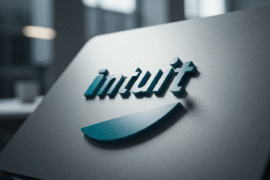This article may contain references to products or services from one or more of our advertisers or partners. We may receive compensation when you click on links to those products or services. Nonetheless, our opinions are our own.
Financing a tech idea today doesn’t have to follow traditional rules. Startups can now leverage blockchain to reshape funding. To bring you up to speed, here’s an overview of the opportunities available and what startups must contend with to succeed in this space.
Understanding ICOs and How They Changed Startup Financing
Initial Coin Offerings (ICOs) are one of the main ways people are monetizing crypto. They have also opened a new path for startups to raise funds directly from global investors. Instead of equity, backers receive tokens, often linked to a future product or platform utility.
Unlike traditional fundraising, ICOs eliminate middlemen like banks or venture capital firms. But they also bring challenges like market volatility and regulatory scrutiny.
Despite their peak in 2017–2018, ICOs remain relevant for blockchain-savvy entrepreneurs seeking alternatives to conventional funding methods.
Startups must prioritize transparency in whitepapers and ensure compliance with securities laws, which can be facilitated by working with financial tech lawyers. This approach helps avoid legal setbacks while maximizing investor confidence.
Exploring DeFi Platforms for Modern Fundraising Options
Decentralized Finance (DeFi) is a $418 million market, and platforms within it empower startups by enabling fundraising through peer-to-peer networks. They offer solutions like liquidity pools, decentralized exchanges, and lending protocols to secure funding without intermediaries.
Using DeFi tools, startups can tokenize assets or create stablecoins to attract investors seeking transparency and efficiency. However, managing risks like smart contract vulnerabilities and market instability is crucial.
Popular platforms such as Uniswap and Aave showcase how accessible DeFi can be for tech entrepreneurs aiming to fund innovative projects while bypassing traditional banking limitations. Clear governance models help build trust within the decentralized financial ecosystem.
Explaining Smart Contracts in Blockchain-Based Financing
Smart contracts automate agreements between parties, removing the need for third-party oversight. These self-executing contracts ensure terms are met before funds or assets are exchanged, reducing fraud and administrative delays.
For startups aiming for rapid growth, smart contracts streamline fundraising by securely managing token distribution during ICOs or DeFi campaigns. They also enhance transparency since all transactions remain recorded on a blockchain ledger.
However, poorly written code can expose vulnerabilities. Collaborating with skilled developers to audit smart contracts is essential for avoiding security breaches that could undermine investor trust and disrupt funding efforts within blockchain financing models.
Turning Assets into Digital Investments via Tokenization
Tokenization converts tangible or intangible assets, like real estate or intellectual property, into blockchain-based digital tokens. These tokens represent ownership stakes, enabling fractional investments that attract a wider range of backers.
For startups, tokenizing equity or future revenue can diversify fundraising strategies beyond traditional models. It opens access to global markets and enhances liquidity for otherwise illiquid assets. Data also suggests that high-growth businesses are investing 2.6 times as much in this investment category than their low-growth counterparts.
However, achieving regulatory compliance is vital to avoid classifying tokens as unregistered securities. Offering transparent valuation methods and adhering to jurisdiction-specific laws lets startups ensure investor confidence while unlocking new financial opportunities through blockchain technology innovations.
Final Thoughts
As you can see, blockchain offers startups innovative ways to finance tech ideas while reaching global investors. From ICOs to tokenization, these tools expand possibilities but require careful planning and legal awareness. Leveraging blockchain responsibly means startups can access modern funding methods that align with transparency, efficiency, and investor trust.

Reviewed and edited by Albert Fang.
See a typo or want to suggest an edit/revision to the content? Use the contact us form to provide feedback.
At FangWallet, we value editorial integrity and open collaboration in curating quality content for readers to enjoy. Much appreciated for the assist.
Did you like our article and find it insightful? We encourage sharing the article link with family and friends to benefit as well - better yet, sharing on social media. Thank you for the support! 🍉
Article Title: Comprehensive Guide to Financing Tech Ideas with Blockchain Solutions
https://fangwallet.com/2024/12/04/comprehensive-guide-to-financing-tech-ideas-with-blockchain-solutions/The FangWallet Promise
FangWallet is an editorially independent resource - founded on breaking down challenging financial concepts for anyone to understand since 2014. While we adhere to editorial integrity, note that this post may contain references to products from our partners.
The FangWallet promise is always to have your best interest in mind and be transparent and honest about the financial picture.
Become an Insider

Subscribe to get a free daily budget planner printable to help get your money on track!
Make passive money the right way. No spam.
Editorial Disclaimer: The editorial content on this page is not provided by any of the companies mentioned. The opinions expressed here are the author's alone.
The content of this website is for informational purposes only and does not represent investment advice, or an offer or solicitation to buy or sell any security, investment, or product. Investors are encouraged to do their own due diligence, and, if necessary, consult professional advising before making any investment decisions. Investing involves a high degree of risk, and financial losses may occur including the potential loss of principal.
Source Citation References:
+ Inspo










































